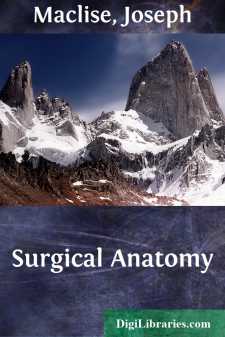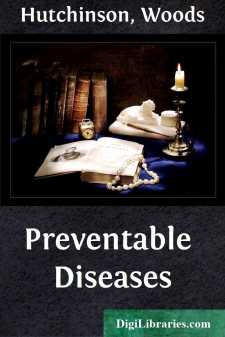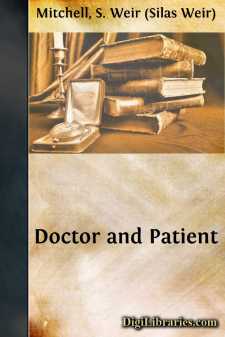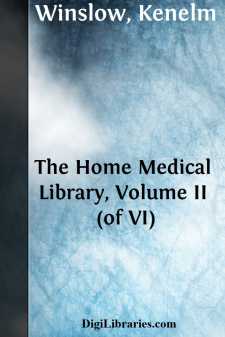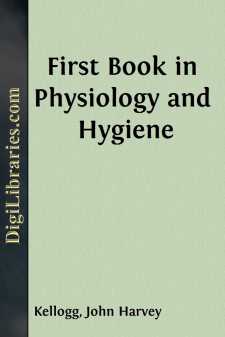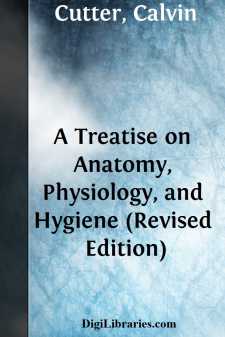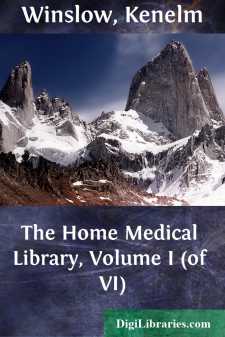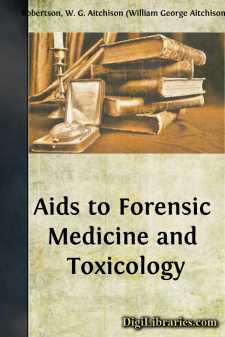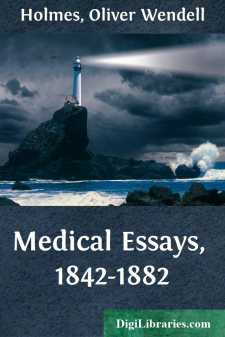Medical
- Anatomy 1
- Diagnosis 1
- General 14
- History 3
- Mental Health 6
- Osteopathy 1
- Pharmacy 2
- Physician & Patient 1
- Physicians 1
- Physiology 10
- Veterinary Medicine 1
Medical Books
Sort by:
by:
Woods Hutchinson
THE BODY-REPUBLIC AND ITS DEFENSE The human body as a mechanism is far from perfect. It can be beaten or surpassed at almost every point by some product of the machine-shop or some animal. It does almost nothing perfectly or with absolute precision. As Huxley most unexpectedly remarked a score of years ago, "If a manufacturer of optical instruments were to hand us for laboratory use an instrument...
more...
INTRODUCTORY. The essays which compose this volume deal chiefly with a variety of subjects to which every physician must have given more or less thought. Some of them touch on matters concerning the mutual relation of physician and patient, but are meant to interest and instruct the laity rather than the medical attendant. The larger number have from their nature a closer relation to the needs of women...
more...
by:
Kenelm Winslow
CHAPTER I Injuries to the Eye—Inflammatory Conditions—"Pink Eye"—Nearsightedness and Farsightedness—Deafness—Remedies for Earache. —Foreign bodies are most frequently lodged on the under surface of the upper lid, although the surface of the eyeball and the inner aspect of the lower lid should also be carefully inspected. A drop of a two-per-cent solution of cocaine will render...
more...
TO THE TEACHER. This book is intended for children. The special objects which the author has aimed to accomplish in the preparation of the work have been: 1. To present as fully as possible and proper in a work of this character a statement of the laws of healthful living, giving such special prominence to the subject of stimulants and narcotics as its recognized importance and the recent laws relating...
more...
by:
Calvin Cutter
PREFACE. Agesilaus, king of Sparta, when asked what things boys should learn, replied, “Those which they will practise when they become men.” As health requires the observance of the laws inherent to the different organs of the human system, so not only boys, but girls, should acquire a knowledge of the laws of their organization. If sound morality depends upon the inculcation of correct principles...
more...
by:
Kenelm Winslow
Preface Medicine, as the art of preserving and restoring health, is the rightful office of the great army of earnest and qualified American physicians. But their utmost sincerity and science are hampered by trying restrictions with three great classes of people: those on whom the family physician cannot call every day; those on whom he cannot call in time; and those on whom he cannot call at all. To...
more...
I.—CRIMES Forensic medicine is also called Medical Jurisprudence or Legal Medicine, and includes all questions which bring medical matters into relation with the law. It deals, therefore, with (1) crimes and (2) civil injuries. 1. A crime is the voluntary act of a person of sound mind harmful to others and also unjust. No act is a crime unless it is plainly forbidden by law. To constitute a crime,...
more...
PREFACE. The character of the opposition which some of these papers have met with suggests the inference that they contain really important, but unwelcome truths. Negatives multiplied into each other change their sign and become positives. Hostile criticisms meeting together are often equivalent to praise, and the square of fault-finding turns out to be the same thing as eulogy. But a writer has rarely...
more...


